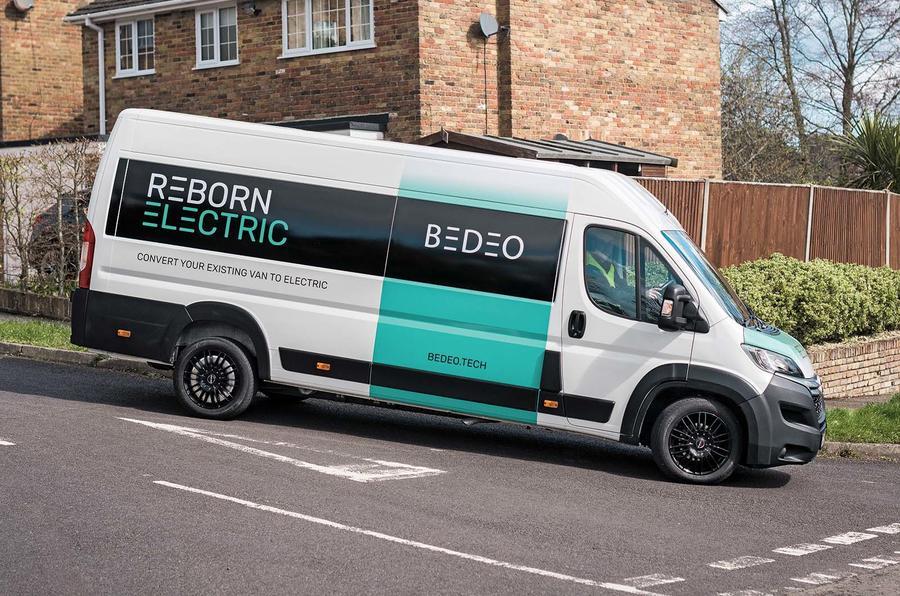Who’s going to clean up the donkeys? The big, 3.5-tonne vans and derivatives that do the biggest mileage and stay on the road for the longest amount of time, and often have been fitted with bespoke cargo areas that cost several times over that of the donor van in the first place. Camper vans, ice cream vans, fridge vans, ambulances, supermarket delivery vans and the like.
Bedeo, an electric vehicle company based in Farnham, Surrey, would like to lead that cleaning up and believes it is a world leader in retrofitting vans with modern, clean, efficient hybrid drivetrains, with its own proprietary electric motor and battery technology.
Its work is done to OEM standards and it currently has the contract to fit electric powertrains to Stellantis's large electric vans at its plant in Turkey.
Bedeo, then, has a very real solution to a very real problem: it can electrify vans already on our roads in a quick and cost-efficient way, significantly reducing emissions for the remainder of that van's substantial life.
Yet the word conversion has a bad name in the industry and is a Wild West of varying standards and quality because there remains no legislation or standards governing conversions in the UK for cars or vans, only for buses.
Bedeo Group CEO and founder Osman Boyner says it is urgent that this is changed because the prolonged life of vans ('vans' is used throughout here to describe the large, 3.5-tonne vehicles, rather than smaller car-derived vans) means that they'll be on the road and not replaced by electric ones for far longer than the government expects. Boyner points to camper vans as having a 30- to 40-year life as an example.
He says: "People are not going to pay three times the price of a diesel van for a new electric one when you have so much invested in the back of a vehicle."
Boyner points to OEM projections that show 3.5-tonne vans will still be about 60-70% diesel-powered when produced new in 2030 across Europe, which means that "the donkeys doing the most work and creating the most pollution" produced then will escape any electrification well into the 2040s and beyond.









Add your comment